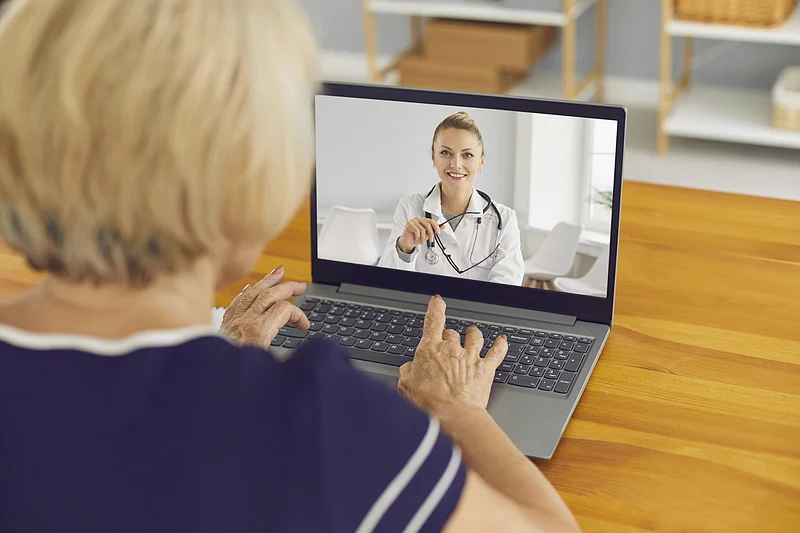Get Healthy!

- Denise Mann
- Posted May 16, 2023
Even After Pandemic, Cancer Patients Prefer Telemedicine Care
During the early part of the COVID-19 pandemic, one of the only ways to see a doctor was via video or phone appointment, and it turns out many people with cancer still prefer telemedicine visits over in-person ones.
The recent end of the U.S. public health emergency will remove some of the flexibilities that were put in place during the pandemic to allow for wider use of telemedicine, and this may be unfortunate, noted study author Dr. Krupal Patel, an oncologist at the Moffitt Cancer Center in Tampa, Fla.
"When implemented right and offered to the right patient, telemedicine visits can be a valuable alternative to in-person appointments,"Patel said. The benefits of telemedicine for people with cancer are substantial, he noted. It allows for greater flexibility with scheduling, reduces costs associated with getting to the doctor's office or hospital, and saves travel time.
For the study, more than 33,300 people with cancer answered survey questions on in-person visits, and almost 6,000 on their telemedicine experiences during and after the height of the pandemic, from April 2020 through June 2021.
Almost 76% of cancer patients were highly satisfied with their access to their doctors via televisits, compared with about 63% of those who saw their doctors in person. About 91% of people who saw their doctor virtually were highly satisfied with the response and amount of concern their doctor expressed. By contrast, just over 84% of people who saw their doctor in person felt this way.
These findings held with time, including after researchers controlled for factors that may affect how a person feels about telemedicine, such as age and insurance status.
Telemedicine isn't always appropriate. At Moffit Cancer Center, people are triaged first to determine whether they need to be seen in person, Patel noted. "It's not an on-demand service."
Dr. Paul Fu, chief medical officer at City of Hope, in Duarte, Calif., agreed. "A lot of the care that oncologists provide simply cannot be provided virtually," said Fu, who had no role in the study.
While City of Hope saw an increase in telehealth visits during the study period, Fu said the cancer center's own assessments "have consistently shown better performance for in-person visits than telehealth visits." Much of that has to do with the complexity and customization involved in cancer treatment, he noted.
The new study is published in the May issue of the Journal of the National Comprehensive Cancer Network.
"Telemedicine has been such a fantastic experience for doctors and cancer patients,"said Dr. Richard Carvajal. He is the deputy physician-in-chief and director of medical oncology at the Northwell Health Cancer Institute in North New Hyde Park, N.Y.
The worry was that there would be an increase in adverse events or that things may be missed virtually, but this has not proven to be the case, he said.
"We can do more remotely than we thought we could,"said Carvajal, who has no ties to the new research. "If someone needs an infusion or has a potentially serious complication, they will need to see the doctor in person, but toxicity checks for people on oral or chronic therapy to treat cancer can frequently be done at home."
More information
The U.S. Department of Health and Human Services has more on the role telemedicine can play in cancer care.
SOURCES: Krupal Patel, MD, oncologist, Moffitt Cancer Center, Tampa, Fla.; Paul Fu, MD, MPH, chief medical officer, City of Hope, Duarte, Calif.; Richard Carvajal, MD, deputy physician-in-chief and director, medical oncology, Northwell Health Cancer Institute, North New Hyde Park, N.Y.; Journal of the National Comprehensive Cancer Network, May 2023
